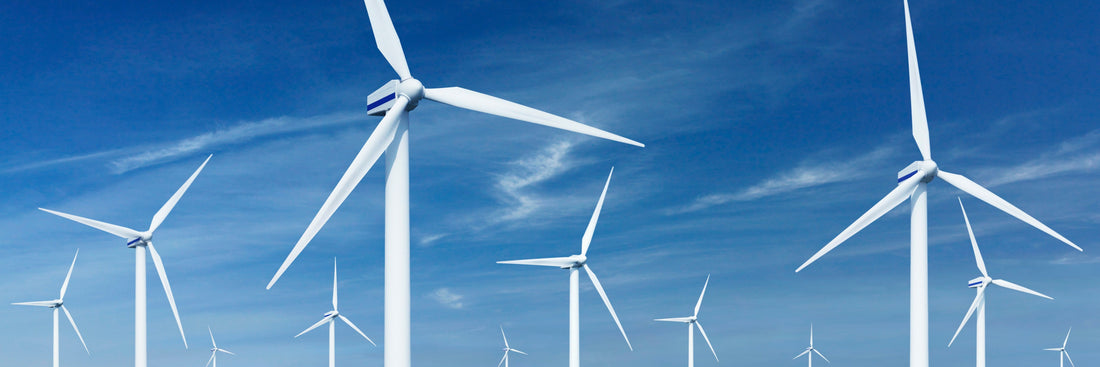
ERP in Energy & Utilities: Powering Compliance, Maintenance, and Capital Projects
Keywords: ERP for energy industry, utilities asset management, capital project ERP, energy compliance software, utility work order systems
Introduction: Where Infrastructure Meets Intelligence
The energy and utilities sector powers the world, quite literally. But behind every watt of electricity, liter of water, or cubic meter of gas is a web of infrastructure, regulations, work orders, and capital projects that must run with clockwork precision.
For that level of coordination, Enterprise Resource Planning (ERP) is essential. Far from being just a back-office tool, ERP in this sector manages everything from asset health and grid performance to compliance, maintenance, field service, and capital investment tracking.
As infrastructure ages and the push for sustainability grows, energy companies are turning to ERP to stay resilient, regulatory-ready, and operationally agile.
Why ERP Is Mission-Critical for Energy & Utilities
The sector is defined by complex assets, strict compliance, and massive capital investments. ERP platforms bring these elements together in one connected ecosystem.
✅ Asset Lifecycle & Maintenance Management
ERP systems track physical assets from turbines and substations to water treatment plants and pipelines across their lifecycle, enabling preventive maintenance, downtime reduction, and cost optimization.
✅ Work Order & Field Service Integration
Field crews receive digitally dispatched work orders, mobile updates, and inventory availability in real time, improving response times and service delivery.
✅ Regulatory Compliance & Reporting
Ensure adherence to ISO 55000, EPA, NERC, FERC, and other regional regulations with automated audit trails, inspections, and documentation built into ERP workflows.
✅ Capital Project Planning & Costing
Manage multi-year infrastructure investments, grant tracking, and construction budgets from design to completion, with integrated forecasting and contractor oversight.
Core ERP Capabilities for Energy Providers
- Asset performance management (APM)
- Preventive and predictive maintenance scheduling
- Work order creation, assignment, and completion tracking
- GIS integration for field mapping and asset location
- Real-time mobile access for field technicians
- Capital budgeting and project costing tools
- Compliance modules for environmental and safety standards
- Meter-to-cash billing system integration
- SCADA and IoT sensor data integration
- Workforce and contractor scheduling
Trends Shaping ERP in Energy & Utilities
Smart Grid & IoT Connectivity
Modern ERP platforms integrate with sensors, SCADA systems, and IoT devices to monitor asset performance and trigger predictive maintenance workflows.
Sustainability & ESG Reporting
With increasing pressure to demonstrate carbon accountability, ERP now supports emissions tracking, energy efficiency data, and ESG disclosures.
Mobile ERP for Distributed Workforces
Utilities are investing in mobile ERP interfaces that allow field technicians to manage work orders, inspections, and safety checklists from anywhere.
Cloud ERP for Regulatory Agility
Cloud-based ERP helps energy firms remain agile in the face of evolving regulations, cybersecurity mandates, and rapid infrastructure scaling.
Real-World ERP Use Cases in Energy & Utilities
-
Electric utilities use ERP for transmission asset scheduling, outage response, and capital expansion planning.
-
Water authorities manage treatment plant maintenance, pipeline inspections, and environmental compliance through ERP systems.
-
Renewable energy companies track turbine uptime, solar panel performance, and investment ROI via cloud-based ERP tools.
- Oil & gas providers rely on ERP to handle complex supply chain logistics, hazardous material compliance, and refinery maintenance.
Why ERP = Uptime, Safety, and Strategic Growth
ERP systems help energy and utility providers:
- Extend asset life and reduce unplanned outages
- Comply with evolving safety and environmental regulations
- Track and manage multimillion-dollar capital investments
- Empower field teams and streamline work order execution
- Improve reporting accuracy and decision-making visibility
“In energy, ERP is more than efficiency - it’s the foundation for resilience, compliance, and customer trust.”
Looking to modernize your utility’s ERP system?
→ Join The Community
Final Thought
As global energy needs grow and infrastructure demands intensify, the industry must evolve, not just in generation but in operational intelligence. ERP empowers energy and utility providers to plan smarter, respond faster, and scale responsibly.
In a world where reliability, safety, and sustainability are non-negotiable, ERP is no longer a nice-to-have. It’s mission-critical.
